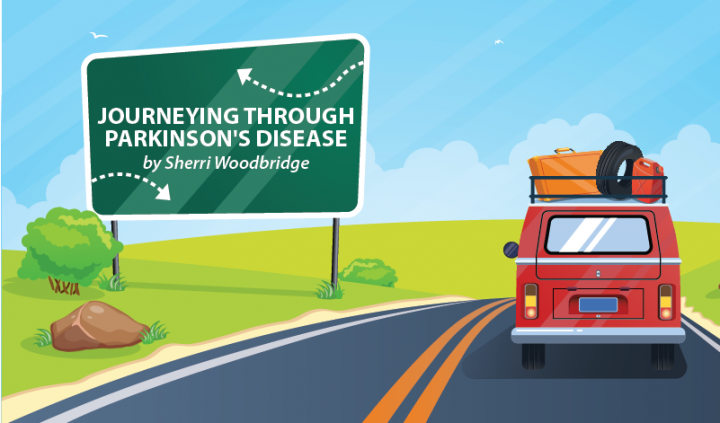Are You Prepared for a Disaster? Here Are Some Tips

Can you believe that August is already here and ticking away even as I click the keyboard keys?
Yes, Christmas is just around the corner (although that is not what I was going to say, even if Hobby Lobby already has their shelves filled to the brim with greens and reds and golds). And that means September is less than a month away, toting National Preparedness Month (NPM) with it!
When I think of NPM, I am taken back to the Loma Prieta earthquake in 1989, the day I thought the world was ending. That earthquake rocked the Santa Cruz mountains and beyond. It shook my parents’ house right off its foundation. At a magnitude of 6.9, it was the “big one” that left hundreds homeless, thousands terrified, and innumerable unprepared.
How do you prepare for a disaster?
I recently read an article about a man with Parkinson’s disease who had a delayed flight and didn’t have any surplus medication with him. The airline staff was no help. He could have prepared by carrying a spare supply (or two, three, or four days’ worth) of medication with him at all times.
I started doing this a while ago, as you just don’t know what might happen. Doing this has saved me countless times from experiencing an unplanned “off” time. Or worse.
Why do we put it off?
The old adage “It will never happen to me” comes to mind when asking that question. But the truth is that disasters, like a Parkinson’s diagnosis, can happen to anyone at any time, no matter their age, time zone, or bathroom decor.
Shortly after the earthquake, my in-laws invested in a good-sized duffel bag. This was to be their “grab-and-go” bag. They kept it in the closet next to the front door. It was ready to grab and go if they had to get out of the house in a hurry.
Experience had shown them what it meant to confront a disaster head-on. They had lost their home to a fire several years before, and although they didn’t lose their house in the Loma Prieta quake, they weren’t wasting time preparing for another disaster.
When it comes time to discuss your disaster plan with loved ones (now!), make sure to designate a meeting place should the need to evacuate arise. Just as you should update the supplies in your bag, you also should occasionally update your meeting place to ensure it still works for everyone involved.
What should you include in your bag?
If you are at home when disaster strikes, you will be ready to head out the door with your emergency duffel bag. However, if you are at work or elsewhere, having a mini bag is recommended, such as a backpack or a small duffle bag that you can store in your car.
Everyone’s bag will differ slightly, but to get you started, following are suggestions of what to include in your mini grab-and-go:
- Copies of your license, Social Security card, medical information (doctors, medications, insurance info, medical hardware charger and info, emergency contact info, allergies, etc.), all sealed in a waterproof bag.
- Medication for two to five days.
- Cash (in smaller bills).
- Small flashlight and spare batteries.
- Multipurpose tool.
- First-aid kit.
- Bottled water.
- Small snacks.
- Comfortable shoes and a lightweight jacket.
Large duffel grab-and-go suggestions:
- Duplicate contents of the waterproof bag listed above.
- Cash (again, smaller bills).
- First-aid kit.
- Extra medication.
- Toilet paper.
- Personal wipes and antibacterial soap.
- Multipurpose tool.
- Flashlight and spare batteries.
- Water, freeze-dried meals, dried fruit, and nuts.
The list can go on and on, and you can find more suggestions on what to include at the government’s build-a-kit site.
Assembling a preparedness kit will give you some peace of mind should a disaster occur. At the very least, it should help to prepare you.
***
Note: Parkinson’s News Today is strictly a news and information website about the disease. It does not provide medical advice, diagnosis or treatment. This content is not intended to be a substitute for professional medical advice, diagnosis, or treatment. Always seek the advice of your physician or another qualified health provider with any questions you may have regarding a medical condition. Never disregard professional medical advice or delay in seeking it because of something you have read on this website. The opinions expressed in this column are not those of Parkinson’s News Today or its parent company, Bionews Services, and are intended to spark discussion about issues pertaining to Parkinson’s disease.







NB Ramsden
After a bad experience with nurses who treated me like an elderly idiot (!) when I was admitted to hospital, I now have a brief note on Parkinson's - the symptoms and the medications - that goes with the emergency supply of drugs in my disaster-bag!
Sherri Woodbridge
Great idea Nora!
Neal White
Thank you Sherri for raising awareness on this topic. Post retirement I have done some training exercises with DHS regarding emergencies in communities near chemical plants. I would suggest keeping your vehicle's fueled up,your Aware In Care PD bag kept available to grab and go besides the items you mentioned. Because I live in a city with a large chemical facility I also keep gas masks in my go bag. I have 30 yrs. of experience with Emergency Services and Response.
Sherri Woodbridge
Neal - what great additions and you are wise to take into consideration where you live and the disasters lurking around you, not just ‘natural’ ones. Thanks for the input!!!